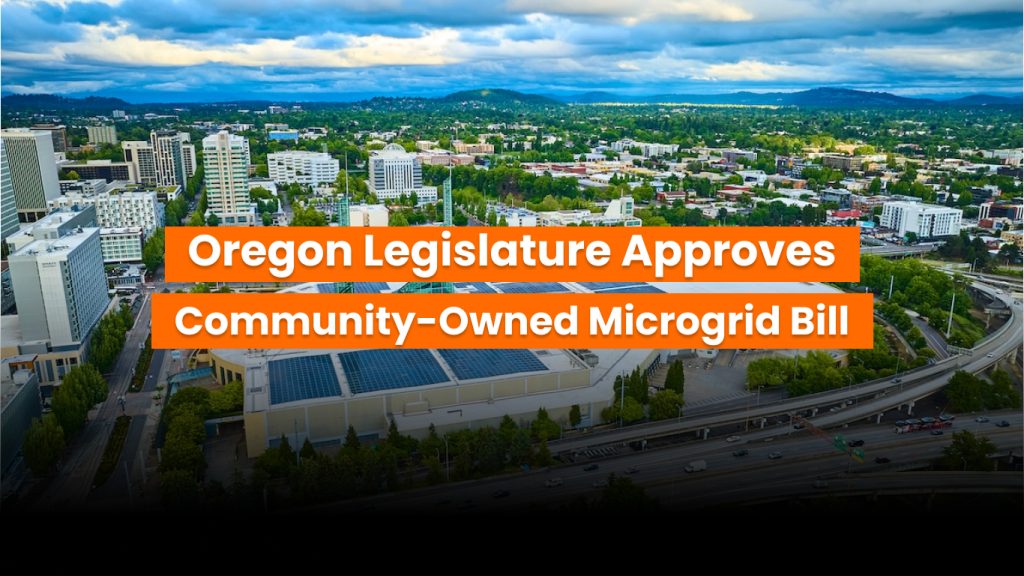In a move praised by clean energy advocates, the Oregon Legislature has passed two critical bills enabling local ownership and operation of microgrids. According to Solar Power World, the newly approved legislation—House Bill 2065 and House Bill 2066—establishes a robust regulatory framework for communities, businesses, and municipalities to build, own, and value their microgrid systems.
Supporters argue that these laws represent a groundbreaking step toward greater resiliency and energy independence, especially important in the face of climate-driven wildfires and outages. Oregon joins a select group of states pioneering community-owned energy infrastructure.
“Thanks to strong community engagement and bipartisan leadership, Oregon has passed the most ambitious microgrid legislation in the nation,” said Dylan Kruse, president of Sustainable Northwest, in comments reported by Solar Power World.
Key Provisions of HB 2065 and HB 2066
HB 2065 allows third-party engineers hired by communities to perform interconnection and engineering studies. This measure combats grid planning bottlenecks that frequently stall renewable projects. Supporters cited frustrating delays in receiving reviews within rural areas and underscored the potential of third-party oversight to accelerate project timelines.
HB 2066 directs the Oregon Public Utility Commission to devise a regulatory roadmap for community-owned microgrids. It mandates clear definitions around ownership, operation, compensation methods, and rules governing grid-connected “islanding” during outages. This bill allocates oversight to public utilities but explicitly allows local systems to feed into the broader grid and maintain standalone operation when necessary.
Representative Mark Owens (R‑District 60) emphasized microgrids’ crucial role in grid resilience. “If we are really going to build resiliency at the community level with community ownership, we have got to figure that out,” he said. “HB 2066 will ask the Oregon Public Utilities Commission to do so.”
The bills passed with bipartisan support in both legislative chambers this June. They now move to Governor Tina Kotek’s desk, where she is expected to sign them into law later this summer.
Broader Benefits and Next Steps
Public broadcasting outlet OPB explains that community microgrids involve local energy networks—fed by renewable sources, often solar and storage—that can operate autonomously during grid outages while feeding electricity back to main power lines during normal operations. These systems are especially valuable to rural communities vulnerable to power disruption linked to wildfires or storms.
Angela Crowley-Koch, Executive Director of the Oregon Solar + Storage Industries Association, told the legislature that utility-owned microgrids alone are insufficient. She said private developers must also participate so “community needs can be met.”
Oregon’s action aligns with a national trend. Microgrid knowledge reports that U.S. microgrid capacity grew roughly 26% annually since 2021, reaching 9 GW as of 2024—partly driven by federal supports like the IRA and Infrastructure Investment and Jobs Act.
Additionally, groups such as Sustainable Northwest, OSSIA, Climate Solutions, and ProtoGen played key advocacy roles in shaping the bills. Modeled language accounts for wildfire-prone regions, providing tools for both urban centers and remote communities.
Looking Ahead
The next phase will see the Oregon PUC drafting interconnection rules, compensation frameworks, and standards for grid-resiliency credits—particularly critical for island-capable community microgrids. These rules must balance technical, safety, and economic interests before implementation.
Once signed into law, HB 2065 and HB 2066 will position Oregon as a national leader in community-driven energy resilience. As Solar Power World emphasizes, creating local microgrids not only boosts reliability during emergencies but also empowers communities, improves energy independence, and supports renewable energy investment at the grassroots level
With these bills, Oregon becomes a trailblazer in empowering communities to take control of their energy, signaling a major policy shift toward distributed, locally owned clean energy infrastructure.




